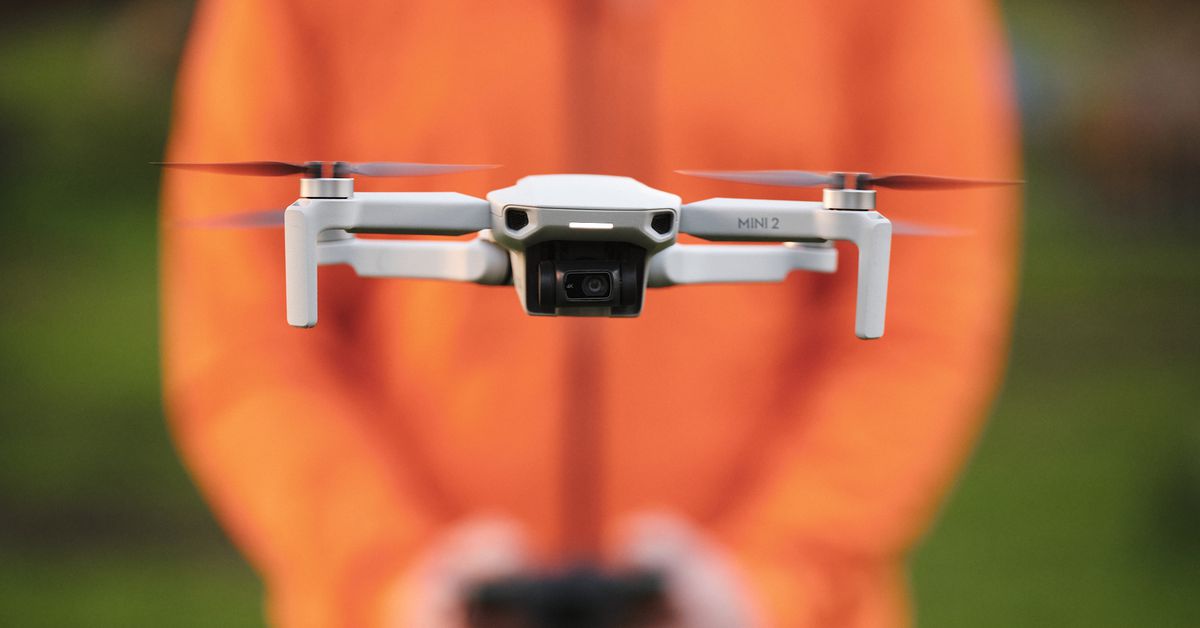DJI Defends Controversial Drone Policy Amid Political Scrutiny
In a recent statement, DJI, a global leader in drone technology, has made headlines by defending its decision to permit drone operations in high-risk zones. This policy has sparked significant political scrutiny, prompting discussions around the implications of such a decision in the context of safety and governance. DJI emphasizes that its move is rooted in safety and operational flexibility rather than political motivations. As tensions rise in various regions, this stance raises crucial questions about the intersection of technology and governance, particularly in an era where drones are increasingly utilized for both commercial and humanitarian purposes.
The Policy in Question
DJI’s controversial policy allows drone operators to fly in areas previously deemed high-risk, such as near military installations or in disaster-stricken regions. This decision has been met with backlash from government officials and regulatory bodies who argue that it could exacerbate security risks or interfere with emergency response efforts.
- Safety Protocols: DJI asserts that its drones are equipped with advanced safety features, including geofencing technology that limits unauthorized access to certain areas. The company believes that allowing drone operations in high-risk zones can help facilitate rapid response in emergencies.
- Humanitarian Efforts: In disaster scenarios, drone technology can be invaluable. DJI points to examples where drones have delivered medical supplies or conducted search-and-rescue operations, arguing that their policy could enhance such initiatives.
The Safety Argument
DJI’s primary argument revolves around safety. By permitting drone operations in high-risk zones, the company contends that it can contribute to more effective disaster response and recovery efforts. Drones can provide real-time data and aerial views that are crucial in assessing damage and coordinating relief efforts.
In many cases, traditional methods of surveying disaster areas can be time-consuming and dangerous. Drones can fly into regions that are otherwise inaccessible, offering a safe and efficient way to gather information. For instance, during natural disasters like hurricanes or earthquakes, drones have been employed to map affected areas, assess structural damage, and even deliver supplies to isolated communities.
Political Backlash and Concerns
Despite DJI’s emphasis on safety, the decision has faced political backlash. Critics argue that allowing drone flights in high-risk zones poses significant security risks. Concerns have been raised about surveillance, unauthorized data collection, and potential interference with military operations.
- Regulatory Challenges: Governments around the world are grappling with how to regulate drone use. DJI’s policy could complicate these efforts, leading to calls for stricter regulations that could limit drone operations in sensitive areas.
- Public Perception: The public’s perception of drones is often mixed. While many recognize their potential for good, others view them with suspicion due to privacy concerns and the potential for misuse.
DJI’s Position on Governance
In light of the political scrutiny, DJI has reiterated its commitment to working with governments and regulatory bodies to establish guidelines that prioritize safety while enabling the beneficial use of drone technology. The company has expressed a willingness to engage in dialogue with stakeholders to address concerns and find common ground.
DJI’s stance reflects a broader trend in the technology industry, where companies are increasingly recognizing the need to navigate complex governance landscapes. By proactively engaging with regulators, DJI aims to demonstrate its commitment to responsible innovation.
The Intersection of Technology and Governance
As drone technology continues to evolve, the intersection of technology and governance will become increasingly important. Policymakers must balance the benefits of drone operations with the need to protect public safety and national security.
- Emerging Technologies: Drones are just one example of how emerging technologies can challenge existing regulatory frameworks. Policymakers must adapt to these changes to ensure that regulations are effective and relevant.
- International Cooperation: Given the global nature of drone technology, international cooperation will be essential in establishing standards and regulations that ensure safe and responsible use.
Looking Ahead: The Future of Drone Policy
As DJI defends its controversial drone policy, the future of drone operations in high-risk zones remains uncertain. The company’s commitment to safety and operational flexibility may pave the way for more innovative uses of drone technology, but it also necessitates ongoing dialogue with policymakers and the public.
In the coming years, we can expect to see:
- Regulatory Evolution: As drone technology continues to advance, regulations will likely evolve to address new capabilities and challenges. Policymakers will need to stay informed about technological developments to craft effective and relevant regulations.
- Increased Transparency: To build public trust, companies like DJI may need to enhance transparency regarding their operations, particularly in sensitive areas. Clear communication about safety protocols and operational guidelines will be key.
Conclusion
DJI’s defense of its controversial drone policy amid political scrutiny highlights the complex relationship between technology and governance. As the company navigates these challenges, it underscores the importance of safety, innovation, and collaboration. The dialogue surrounding drone operations in high-risk zones is just beginning, and the outcomes will have lasting implications for the future of drone technology and its role in society.
Ultimately, the integration of drone technology into various sectors can provide significant benefits, but it requires a careful balance of safety, regulation, and public trust. As stakeholders engage in discussions about the future of drone policy, it is crucial to keep the focus on responsible innovation that prioritizes the safety and well-being of all.
See more Future Tech Daily

